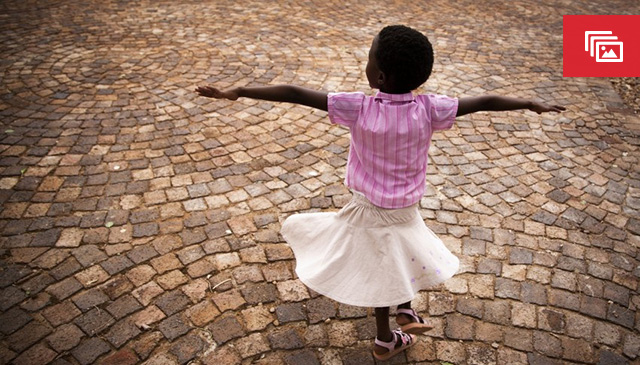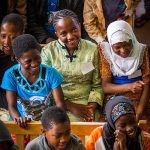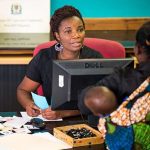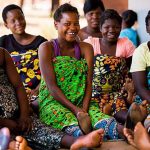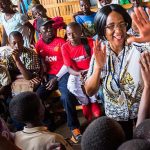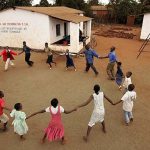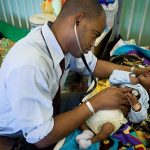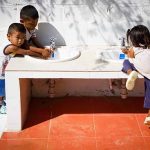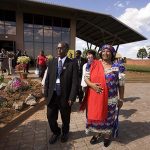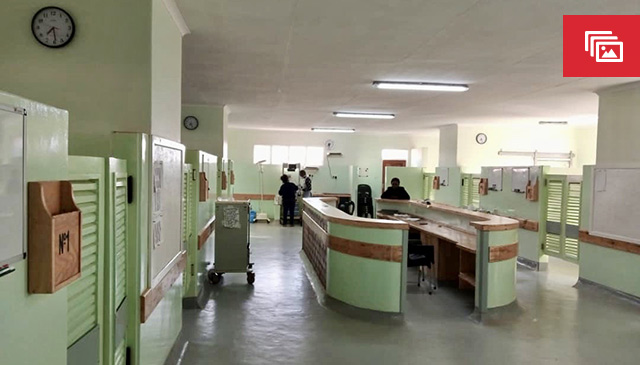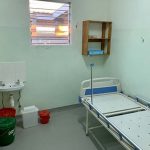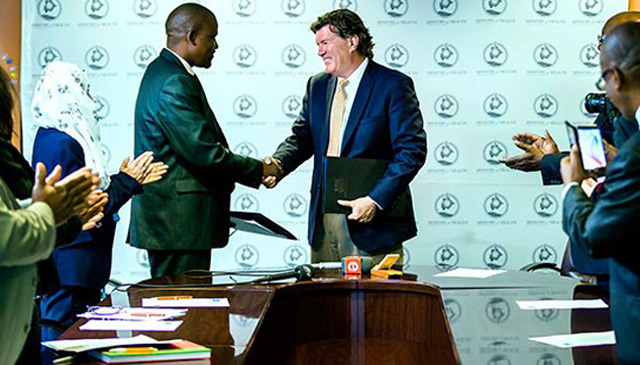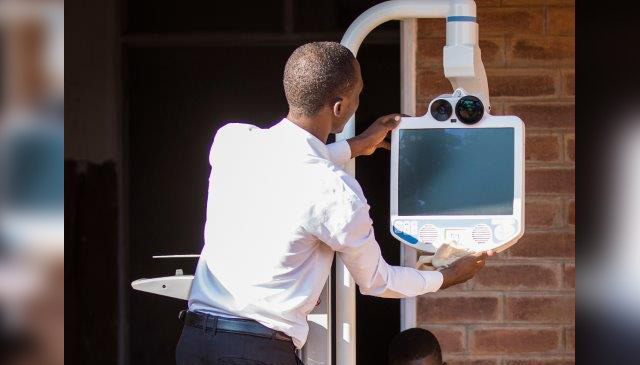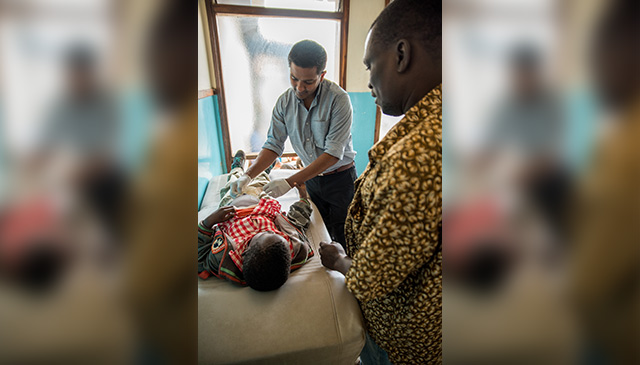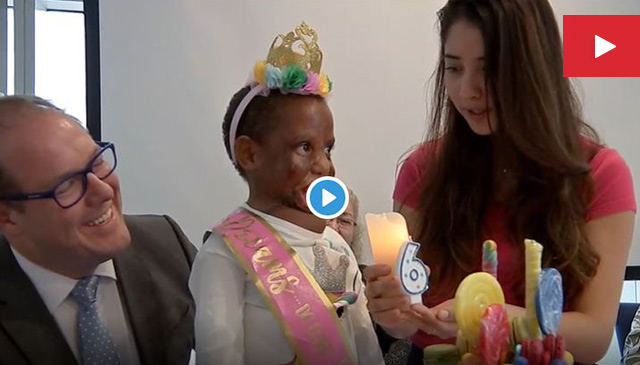August 19, 2020
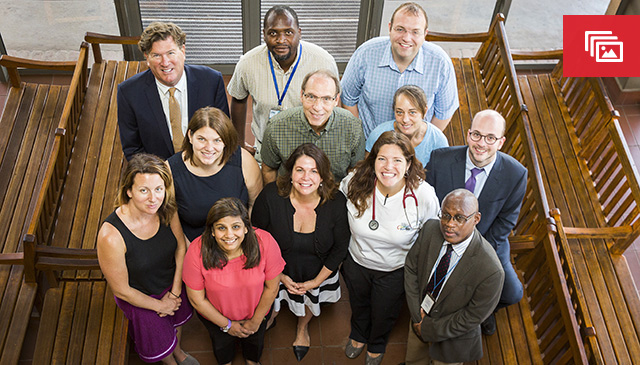
Baylor College of Medicine International Pediatric AIDS Initiative (BIPAI) at Texas Children’s Hospital lost one of its founding members August 11 with the passing of Dr. Peter Nicholas Kazembe. He was the founding executive director of Baylor-Malawi and served as director until his retirement in 2018.
Kazembe, often considered the “grandfather of pediatrics” in Malawi, made monumental contributions to the health of children and families in Malawi and beyond over his decades-long career. He was instrumental in the development of pediatrics as a specialty in Malawi. His collaborations and mentorship impacted the careers of thousands of doctors and health professionals, who now provide stellar pediatric care throughout Africa and beyond.
“Dr. Kazembe was a dedicated husband, father, leader, advocate, mentor, clinician educator, teacher and friend,” said Michael Mizwa, BIPAI chief executive officer. “I’m deeply saddened by his loss but know his legacy will live on in the work of many.”
Click here to listen to some of Kazembe’s colleagues talk about his loss and the significant contributions he made to pediatric health care in Malawi.
Kazembe’s legacy includes pioneering Malawi’s pediatric HIV/AIDS care, treatment and prevention programming; developing the country’s first HIV treatment guidelines; providing mentorship and education to countless health professionals; and collaboration with pediatricians and child health advocates all over the world.
Under his leadership, Baylor College of Medicine Children’s Foundation-Malawi in a public private partnership with the Government of Malawi and Abbott Fund, built and operated the first stand-alone pediatric HIV clinic in Malawi and was the first non-government organization to provide antiretroviral therapy for children in Malawi, fast becoming the country’s largest provider of pediatric HIV care.
“The work and leadership of Dr. Kazembe has saved countless lives,” said Phoebe Nyasulu, executive director of BIPAI’s Center of Excellence (COE) in Malawi. “Without him, we wouldn’t be where we are today.”
Kazembe’s contributions span clinical care, research, advocacy, policy, and education – and cross pediatric HIV, tuberculosis, malaria, neonatology, maternal and child health. Throughout his career, he developed long-lasting partnerships and deep friendships around the world that have blossomed and prospered and will continue to benefit the people of Malawi for decades to come.
“Dr. Kazembe was instrumental in the start of every single Texas Children’s global health program in Malawi,” said Dr. Susan Torrey, vice chair of the Global Health Steering Committee. “His leadership and vision have enabled Texas Children’s to expand care in Malawi to include cancer, cardiology, surgery, maternal health and emergency medicine, his support of which was instrumental in the successful emergency medicine collaboration between Texas Children’s and other organizations.”
Dr. Jeff Wilkinson, vice chair of Global Women’s Health with Baylor College of Medicine and director of Texas Children’s Global Women’s Health Program, said the impact Dr. Kazembe made during his lifetime on the people of Malawi, especially mothers and children, is invaluable.
“Pediatric and maternal care has advanced by leaps and bounds because of Dr. Kazembe’s efforts,” Wilkinson said, adding that more than 6,000 babies are now born each year at Area 25 Health Center, a public-private partnership between Baylor, Texas Children’s and the Malawi Ministry of Health. “The impact of his knowledge and dedication to pediatric and maternal health care will be felt for generations to come.”
In honor of Kazembe’s work, he will be posthumously awarded the American Academy of Pediatrics 2020 Hillman-Olness Award for lifetime service and lasting contributions to global child health. The award will be presented on October 5.
Established in 2011 in honor of the late Liz Hillman, the late Donald Hillman, and Karen Olness, the award recognizes individuals who have devoted their careers to advancing global child health. Among the numerous enduring legacies from Kazembe’s expansive career are the long-standing international and inter-institutional partnerships and collaborations that he forged, all of which continue to benefit the people of Malawi.
His collaborations and mentorship undoubtedly impacted the careers of thousands of doctors and health professionals, including numerous Fellows of the American Academy of Pediatrics (FAAPs), who now provides stellar pediatric care all over Africa and the United States.
Ministry of Health Principal Secretary Dr. Charles Mwansambo said in The Nation, Malawi’s leading newspaper, that he will miss Kazembe at both national and personal levels.
“At a time when many Malawian doctors studying abroad, especially specialists, were opting to stay abroad and make money for themselves, Peter returned home to serve and save what he knew best: the children and his own countrymen. He was a passionate and selfless man.”
Anna Mandalakas, director of Texas Children’s Global Tuberculosis Program, said she is extremely fortunate to have known Kazembe and to have learned from the work he did that changed the lives of so many.
“I have been inspired not only by his work but by the kind, compassionate, and humorous person that he was,” Mandalakas said. “I have smiled so much thinking about him these past days.”
